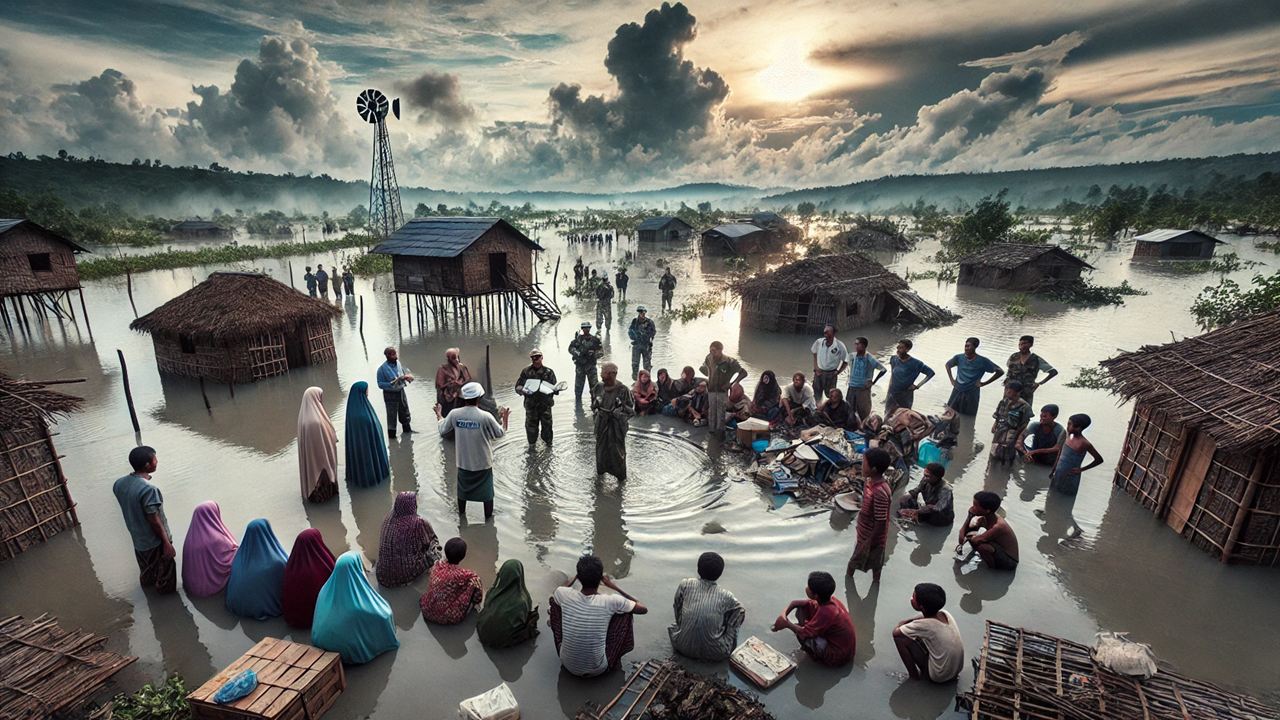The United Nations World Food Programme (WFP) has issued a dire warning about the catastrophic floods ravaging West and Central Africa, impacting over four million people across 14 countries. This alarming situation comes amid a regional hunger crisis that now affects 55 million people—four times more than five years ago.
National governments are on the frontline of this crisis, with WFP’s support providing crucial food and nutrition assistance to nearly one million people throughout the region.
"Fourteen countries are grappling with rising floodwaters, destroyed homes, and devastated farmland, all while facing severe hunger," said Margot Van der Velden, WFP’s Regional Director for Western Africa. "A crisis of this magnitude requires a coordinated regional response to urgently save lives and protect the livelihoods of those affected. WFP is collaborating with national governments to help communities recover."
In Nigeria's Maiduguri, WFP has quickly established food kitchens in four camps following floods that have inundated half of the town. These kitchens are serving nutritious meals of rice and beans to families displaced by the floods. Similarly, in Chad, Liberia, Mali, and Niger, WFP is providing emergency food and cash assistance to those in severely affected areas, helping families meet their basic needs while they begin the recovery process.
Alongside immediate emergency aid, WFP is advocating for investments in early warning systems, anticipatory actions, disaster risk financing, and social protection systems. These measures are crucial for mitigating flood and climate risks, building community resilience, and enhancing adaptive capacity.
“Anticipatory actions are vital for delivering more effective and forward-thinking humanitarian assistance,” Van der Velden added. “They can save lives, maintain dignity, and offer significant financial benefits.”
The floods are exacerbating an already dire food security situation by disrupting farming and livestock activities. Strengthening anticipatory measures and disaster risk financing is essential for mitigating the impact of climate shocks and enhancing community resilience.
For instance, in Niger, WFP's anticipatory actions include reaching 200,000 high-risk individuals with early-warning messages and essential information via community radios and text messages. In countries like Chad, Burkina Faso, Mali, Mauritania, and Niger, WFP is working with governments to integrate emergency responses with existing social safety nets and protection programs.
Additionally, WFP is partnering with the International Fund for Agricultural Development (IFAD) on the African Integrated Climate Risk Management Programme (AICRM) project. This initiative aims to bolster the resilience of farmers and communities through expanded microinsurance opportunities, helping them recover from climate-related shocks.
WFP urgently needs US$ 16 million to continue its emergency food and nutrition support for flood-affected families and to strengthen capacity-building efforts for national governments.











